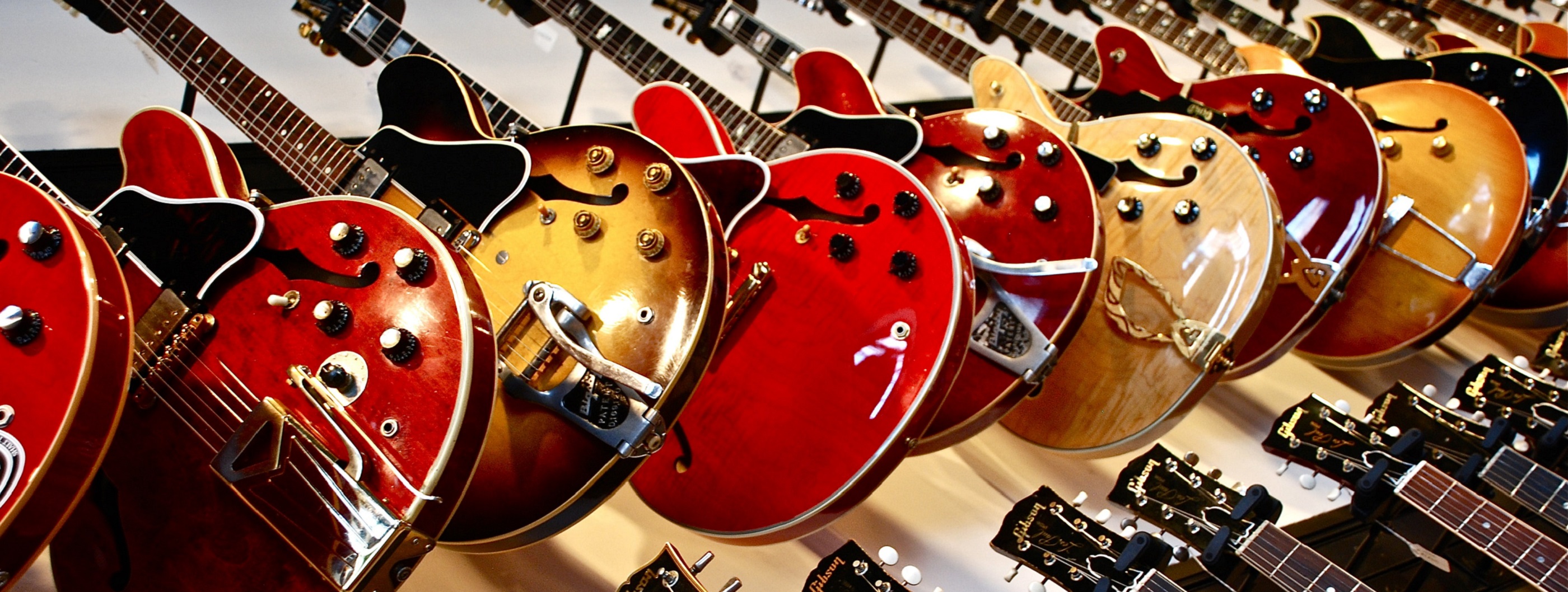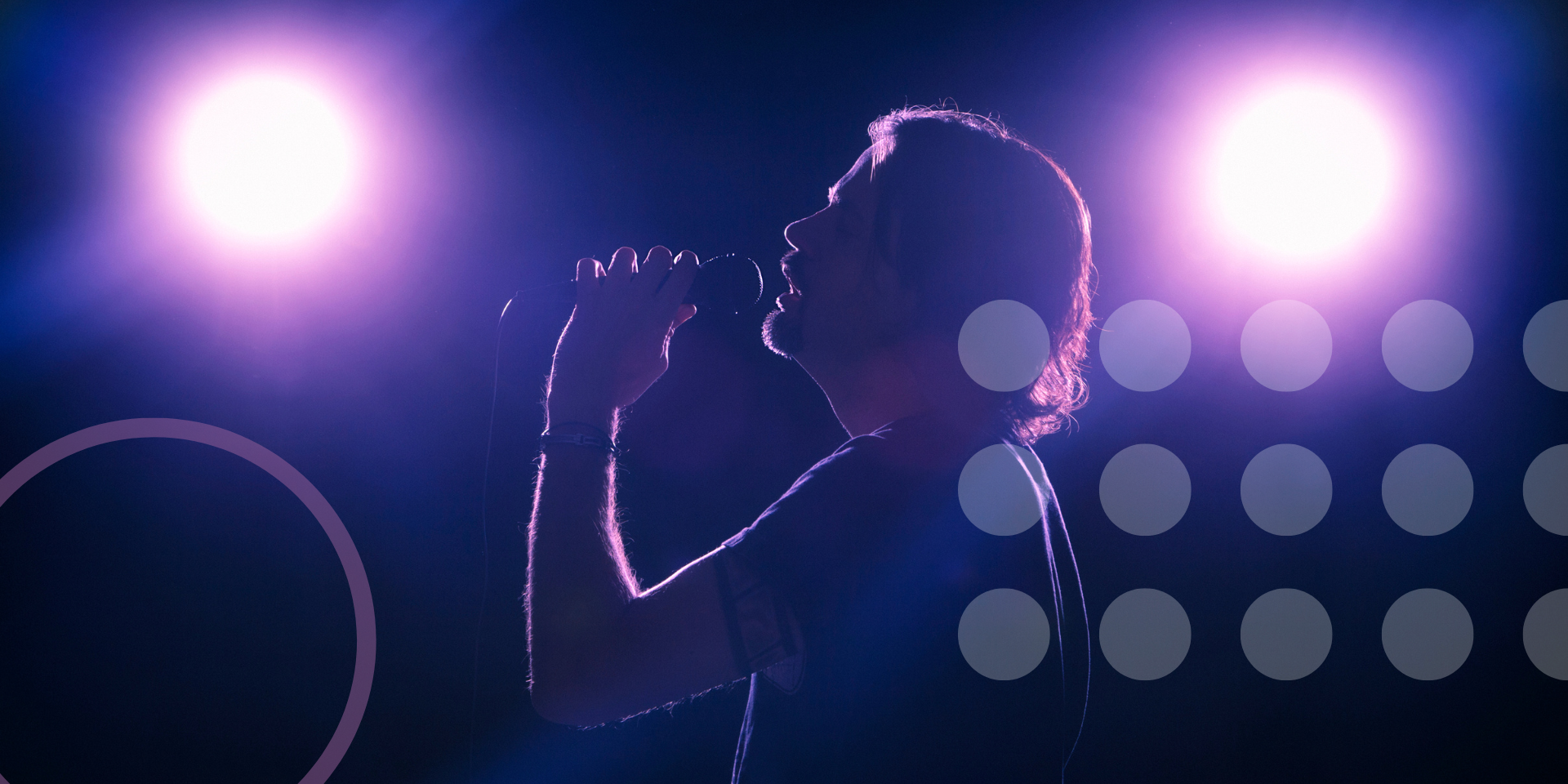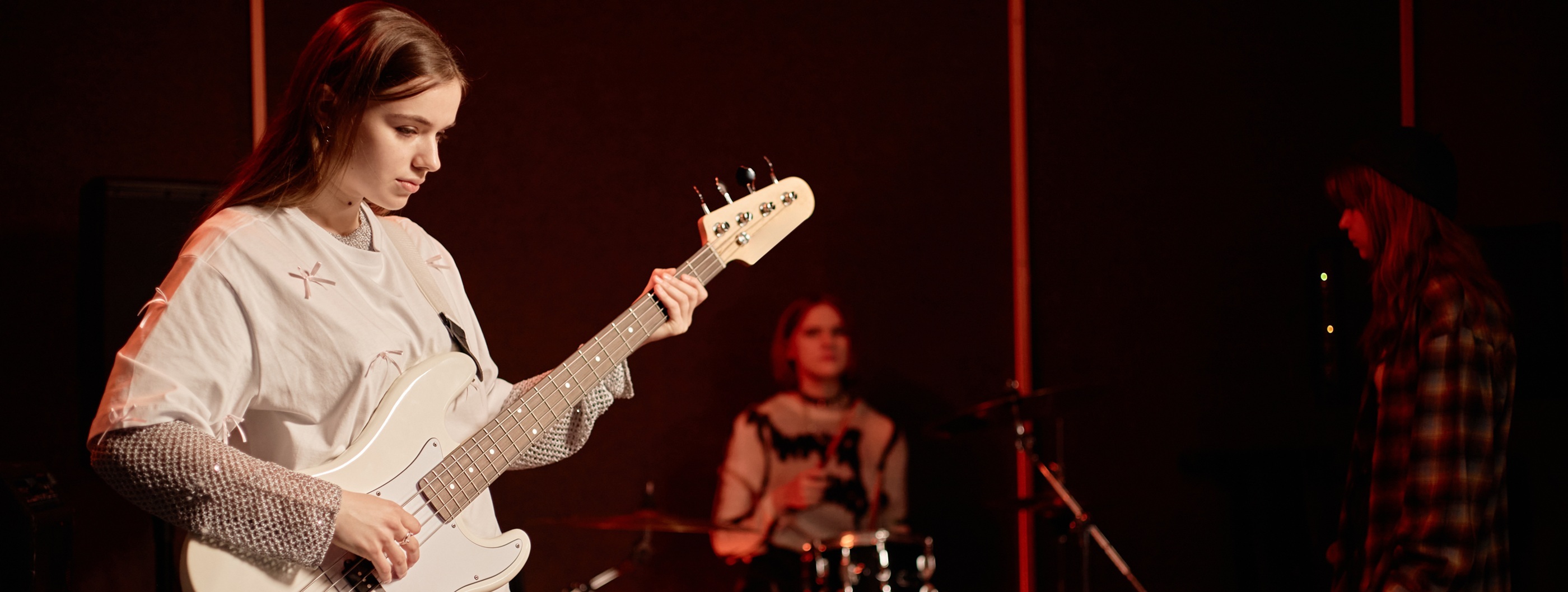
Acoustic, classical or electric?: choosing your pathway as a guitarist

BY: John Molloy
25 May 2022
Playing the guitar is an instrument of choice for so many - the versatility and portability of the instrument being one of the greatest draws - but how do you choose which type of guitar to play and is there any difference in the outcome?
Although often popularised as a very modern instrument, the guitar family goes back a very long way: a guitar-like instrument called the tanbur, found in ancient Egypt, dates from around 1500 BC! The construction and design of guitars has developed over time, and so too have the techniques employed to play them and the styles of music played. It is also a dynamic discipline where new ideas and principles are being developed perpetually. As a result, there is an ever-growing pool of music, artistry, methodology and creative ideas that guitarists around the world are exploring.
In the choice of options for our assessments at Trinity, we want to reflect this innovative sphere by offering a broad range of qualifications to suit the way the instrument is developing. Over three different instrumental graded syllabuses (from Initial to Grade 8), our books are packed with inspiring key skills, great opportunities and inspiring repertoire.
Classical guitar encompasses a range of inspiring repertoire from the Renaissance to the present day to be played on a nylon strung, hollow bodied instrument or nylon strung classical guitar with cutaway. Inspiring repertoire can be found across the Classical guitar syllabus including famous works like Carulli's Valse at Grade 3 or Tarrega's Rosita at Grade 7. It also features pieces from female composers like Tatiana Stachak's Country Etude at Grade 5 or Annette Kruisbrink's Adana at Grade 8. Duets are available through to Grade 5, offering pieces like La cumparista at Grade 2 and Baron's Allemande at Grade 4.
Acoustic guitar bridges the gap between Classical and Electric guitar. Incorporating folk, acoustic, rock and pop, jazz, blues and country styles, pieces are played on a nylon or steel strung acoustic or electro-acoustic guitar, with or without an amplifier. The extensive song lists feature those from composers like Bob Marley, The Eagles, The Lumineers, Ed Sheeran and, at Grade 7, the timeless Classical Gas by Mason Williams. This syllabus has a pathway to inspire any budding guitarist, offering the learner the opportunity to play both finger-style and with a plectrum, and allowing the developing artist to craft their performance using a variety of different playing styles.
Electric guitar, which is included as part of our Rock & Pop suite, features a huge range of songs spanning all contemporary styles, coupled with fantastic backing tracks to learn and perform with, and played on a steel-strung electric guitar (or nylon-strung classical, steel-strung acoustic/electro-acoustic guitar from Initial to Grade 2 only). Tracks like Ziggy Stardust by David Bowie, You Know I'm No Good by Amy Winehouse, Johnny B Goode by Chuck Berry, and Voodoo Child by The Jimi Hendrix Experience can be found across the graded songbooks from Initial to Grade 8. You also have the opportunity to bring in own choice pieces and use the extensive library of extra songs. For more information on how to pick songs and the options available, check out the Rock & Pop Guitar syllabus.
We interviewed some guitar teachers and students to get their thoughts - here's what they had to say:
"Trinity guitar syllabuses offer new musical knowledge and instrumental techniques to learn but, compared to other materials, they are also more fun and easy to use. Plus, they offer a bigger range of musical styles in their song choices!"
Phil, guitar teacher, North Yorkshire
"All of the pieces chosen through the grades are carefully selected to increase in difficulty and skill alongside the students' progress. This provides just the right level of challenge to keep their interest but also encourage and motivate them to new heights!"
James, guitar teacher, East Midlands
"The songs I have played so far have been fab and I have loved learning them all! My favourite is actually the one I am learning now - 'Desire' by U2! It's ace that I can choose pieces from the book and from my own choice. I'm working on a song by The Cranberries at the moment - my favourite band!"
Isla, aged 13, Grade 4 Rock & Pop student
So how do you now choose your pathway?
A good place to start with any instrument is to consider the artists/performers or styles of music that inspire you most. Listen to a variety of music from across the breadth of guitar repertoire and consider the sounds you would like to imitate. Talk to other people who already play and ask them where they started. Taking lessons with a teacher will also help as they will be able to help you develop your guitar playing, introduce you to the various techniques, and explore new styles and genres.
Whichever pathway you choose, a good place to start is by looking at Introducing Guitar; you can get a free sample here or purchase either the printed or digital e-book from the Trinity Shop.
Your journey may begin with one style but remember: learning the guitar is as dynamic as the instrument itself. If you start on one path but discover another that captures your attention and imagination more, you can change direction at any time. In the words of a guitarist friend of mine:
"Guitar could very well be the most diverse instrument there is. With such diverse techniques to learn and styles for which the instrument blends into, it can be a lifelong fascination to place it in any musical sphere. It also doesn't harm that it's so astoundingly stylish and effortlessly cool, an icon throughout the years!"
If you want to know more about our guitar syllabuses, why not watch back the recordings from our webinars? You can find links to our sessions on Acoustic guitar, Classical guitar, Rock & Pop on the webinars and events page of our website.
Photo by Susan Mohr on Unsplash




Comments & Replies